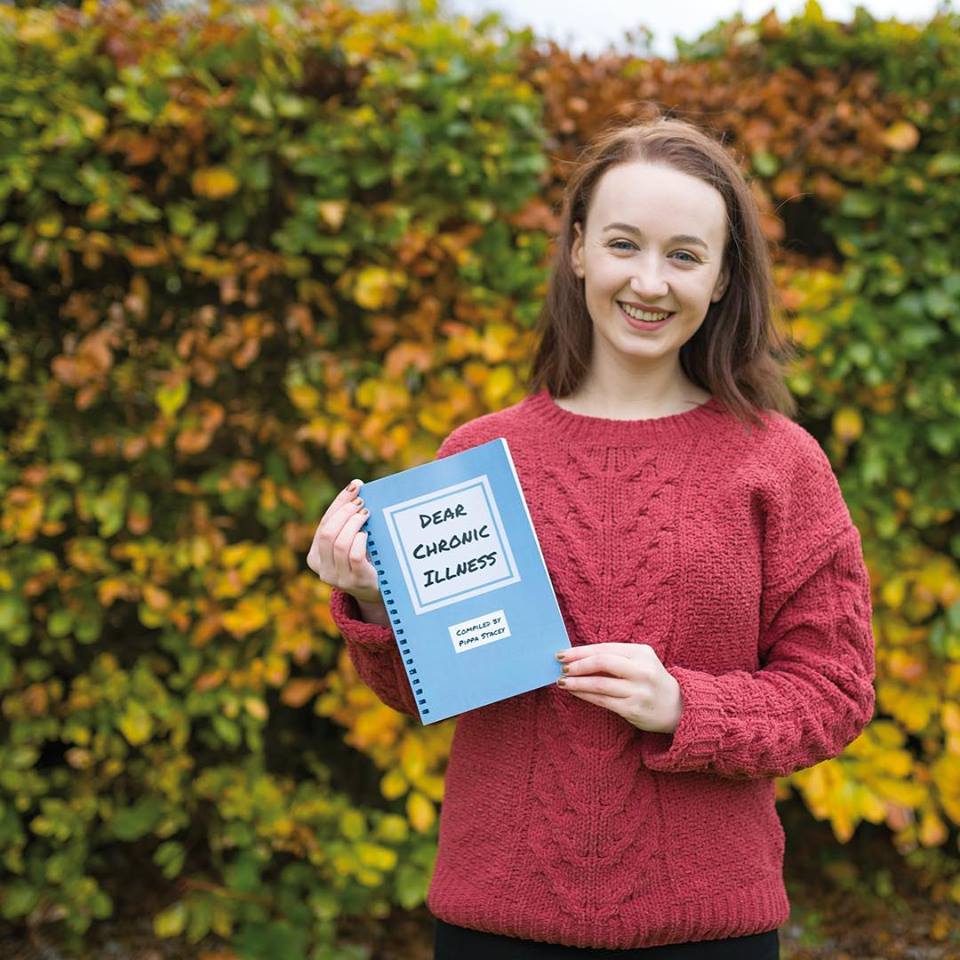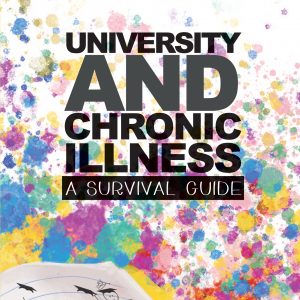This post was first published in May 2018, and has been updated for May 2021. This piece was written in a personal capacity and all views are, of course, my own. You can find out more about me here, and read my chronic illness story here!
Since we’re approaching M.E. Awareness Month, I thought I’d throw together a post featuring just some of the things you can do to show your support. Most of them are quick and easy, and won’t cost you a penny…

1) Have a scroll through #MEAwarenessMonth/#MEAwarenessDay/#PWME posts on social media (particularly on Twitter), and share posts. Most UK ME/CFS launch their own online campaigns, and be sure to keep an eye on ME Action’s #MillionsMissing campaign too; further details should be coming soon.
2) Watch Unrest: a Sundance Award-winning documentary created by chronic illness activist Jennifer O’Brea. It’s a 90-minute film that’s made waves in the ME/CFS community and marked a crucial turning point in the general public’s understanding of the condition. It’s available on UK Netflix, and you can also purchase and download the feature on various other platforms, by visiting the Unrest Website. There’s also a 30 minute documentary called M.E and Me on BBC Newsbeat: watch the episode here.

3) Join in with ‘Go Blue For ME’, the ME Association’s ongoing campaign for M.E Awareness Week. The aim is to get more people than ever to ‘Go Blue’ in whatever way they can, to raise awareness of ME: snap an image and use the hashtag #GoBlue4ME on socials. You can find some ideas for going blue thinking on the ME Association’s website.
4) My lovely friend Anna is the mastermind behind the annual Blue Sunday tea party for M.E. Consider joining in with the virtual online event: tea and cake for a good cause! Find out more about this year’s event on Anna’s page.
5) You could have a read of some recent study findings, that are slowly building a strong evidence base for the immunological mechanisms involved in patients with ME/CFS. You can read Action For ME’s latest hot topics online, or find lay summaries of published research studies on the ME Association website.

6) Support your favourite chronically ill creators! Bloggers and influencers will be using their platforms to do amazing things over the upcoming month, and liking and sharing content that resonates with you can make more of a difference than you might think. This post from Louise’s Little Life also shares links and information about a handful of bloggers with ME/CFS, who form part of a marketing initiative I established for a charity in 2019. You can find titles from some of my favourite chronically ill authors here, and I’d also highly recommend browsing the #MECFS hashtag on Instagram to find new people to follow. Diversify your newsfeed, gang.
7) Spread the word about other projects and enterprises run by people with lived experience of M.E or chronic illness: some of my personal favourites include Project Parent , BearHugs Gifts , Smile For ME , Charlotte Elizabeth , Jayne Tapp Design, CFS Selfies, and Buzz and Bear. If you have any recommendations of your own, I’d love to hear them!
8) Message a friend with ME/CFS, ask what you can do to support them or the cause, and let them know they’re in your thoughts. Long-term illness can be incredibly isolating, and it’s rather likely you’ll make their day. Empathy goes a long, long way.
9) Think about how you can use your time and energy. Most ME/CFS initiatives are led by people dealing with debilitating fatigue as well as many other symptoms, and your support could help elevate our voices and enable our work to reach more people. Write to your MP to ask for greater support and investment for patients with ME/CFS, see if there’s a local ME/CFS support group near you who could benefit from volunteers, or contact smaller charities and organisations near you to see if they’re in need of your skills. Even if you too would prefer to get involved remotely, you can find some tips and tricks for volunteering from home in this previous blog post.
10) If you can, make a donation to one of the leading M.E. charities. Funds are used to facilitate crucial biomedical research, advocate for policy change, and provide practical and emotional support for individuals living with this debilitating illness. Different charities specialise in different areas, and you can find a nice concise summary of the different organisations on Blue Sunday organiser Anna’s website.
These are just some of the ways you can get involved: I’d love to hear any of your own suggestions too. Will you be joining in with M.E Awareness Month this year? However great or small, I’d love to hear what you’ll be getting up to. You can find out more about my own chronic illness story here, and if you liked this piece, you may be interested in my other chronic illness posts too!
Related Posts:





